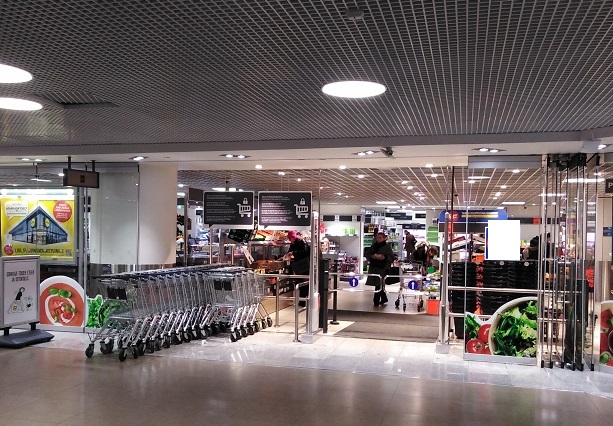PAM warns of 5-day strike in business sector from February 17
Published : 01 Feb 2025, 01:25
Updated : 01 Feb 2025, 01:31
Service Union United (Palvelualojen ammattiliitto-PAM) on Friday warned of enforcing a five-day strike at business sector from February 17 demanding a collective agreement.
The union called the strike at logistic and grocery sectors as the negotiations between PAM and the Finnish Commerce Federation ended on Thursday without any progress, said PAM in a press release.
The strike in commerce sector logistics will begin on February 17 at 5:00 and end on February 20 at 5:00 while the strike in grocery stores will begin on February 19 at 5:00 and end on February 22 at 5:00.
The strikes will involve more than 70,000 workers.
The Executive Committee also decided on a ban on shift changes and transfers across the entire commerce sector, which will take effect on February 3 at 00:01.
The strike covers a significant portion of logistics operations in the sector as well as retail stores.
More than 3,000 workplaces and sites will be on strike. During the strike, no work covered by the collective agreements in the commerce sector will be performed at these locations.
The strikes will largely halt warehousing and logistics operations in the commerce sector, affecting, among other things, the delivery of goods to grocery stores and other businesses. The strikes affecting stores will impact shops selling daily consumer goods.
The strike covers all K-Market, K-Supermarket, and K-Citymarket stores. Within the S Group, the strike includes all Alepa, Sale, S-Market, Prisma, and Sokos stores, as well as some ABC outlets.
Additionally, all Lidl, Halpa-Halli, and Tokmanni stores across Finland will observe the strike. The strike also covers these companies’ office functions, administration, and customer service operations.
“Our alternative would have been to reach an agreement,” said PAM president, Annika Rönni-Sällinen, terming the situation unfortunate.
She hoped that employers would show more willingness to improve working conditions in the commerce sector.
“Workers in the sector deserve wages that are sufficient to live on, having been affected by price increases, cuts to social security, and tax hikes. Our alternative would have been to reach an agreement, but the employers refused to take that option,” Rönni-Sällinen said.
PAM’s demand is a 10% pay increase, with a minimum increase of €250 per month over two years.
The Finnish Commerce Federation has responded with a proposal that is completely unacceptable and does nothing to bridge the gap in workers’ purchasing power.
PAM has also brought other major issues to the negotiating table: improving the status of part-time workers, increasing full-time employment, ensuring current protections against dismissal, and reducing working hours for those working strenuous schedules.
“This is not just about pay increases; it is about reforms that improve the balance between work and private life for workers in the service sector,” Rönni-Sällinen added.
Since early January, PAM and the Finnish Commerce Federation have been negotiating wages and working conditions in the commerce sector. PAM’s goal is to reach an agreement, but the employers’ unwillingness to negotiate on key issues prevents this from happening.
“It seems that the employers are playing hide and seek, waiting for a solution in the technology industry. That sector has been without an agreement since early December. This is unfair to workers,” Rönni-Sällinen said.
The collective agreement for ski centres between PAM and the Finnish Hospitality Association MaRa expired on Friday.
PAM’s Executive Committee has declared a ban on overtime and shift changes across the entire sector, starting on Monday.


